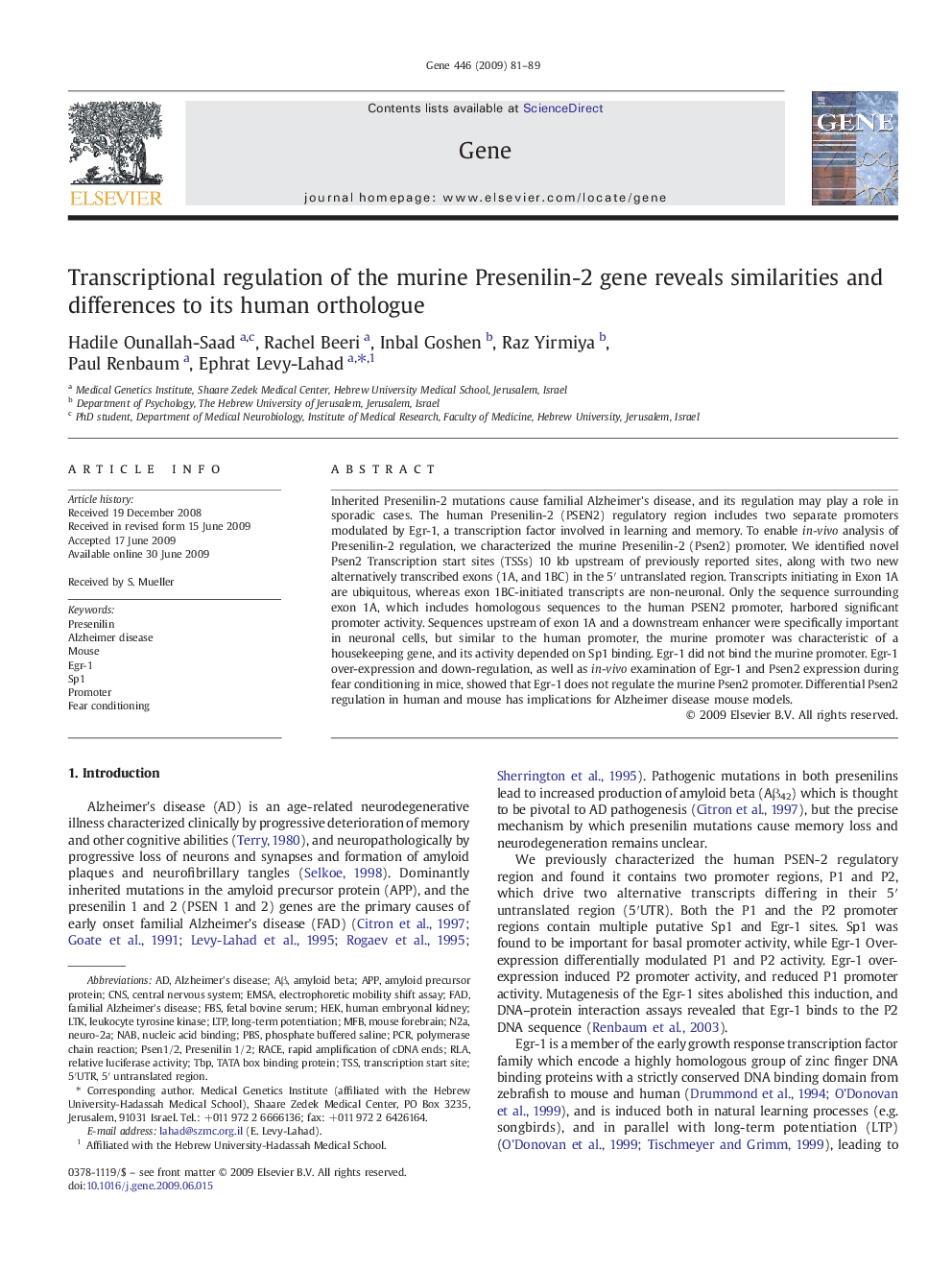| Article ID | Journal | Published Year | Pages | File Type |
|---|---|---|---|---|
| 2818731 | Gene | 2009 | 9 Pages |
Inherited Presenilin-2 mutations cause familial Alzheimer's disease, and its regulation may play a role in sporadic cases. The human Presenilin-2 (PSEN2) regulatory region includes two separate promoters modulated by Egr-1, a transcription factor involved in learning and memory. To enable in-vivo analysis of Presenilin-2 regulation, we characterized the murine Presenilin-2 (Psen2) promoter. We identified novel Psen2 Transcription start sites (TSSs) 10 kb upstream of previously reported sites, along with two new alternatively transcribed exons (1A, and 1BC) in the 5′ untranslated region. Transcripts initiating in Exon 1A are ubiquitous, whereas exon 1BC-initiated transcripts are non-neuronal. Only the sequence surrounding exon 1A, which includes homologous sequences to the human PSEN2 promoter, harbored significant promoter activity. Sequences upstream of exon 1A and a downstream enhancer were specifically important in neuronal cells, but similar to the human promoter, the murine promoter was characteristic of a housekeeping gene, and its activity depended on Sp1 binding. Egr-1 did not bind the murine promoter. Egr-1 over-expression and down-regulation, as well as in-vivo examination of Egr-1 and Psen2 expression during fear conditioning in mice, showed that Egr-1 does not regulate the murine Psen2 promoter. Differential Psen2 regulation in human and mouse has implications for Alzheimer disease mouse models.
